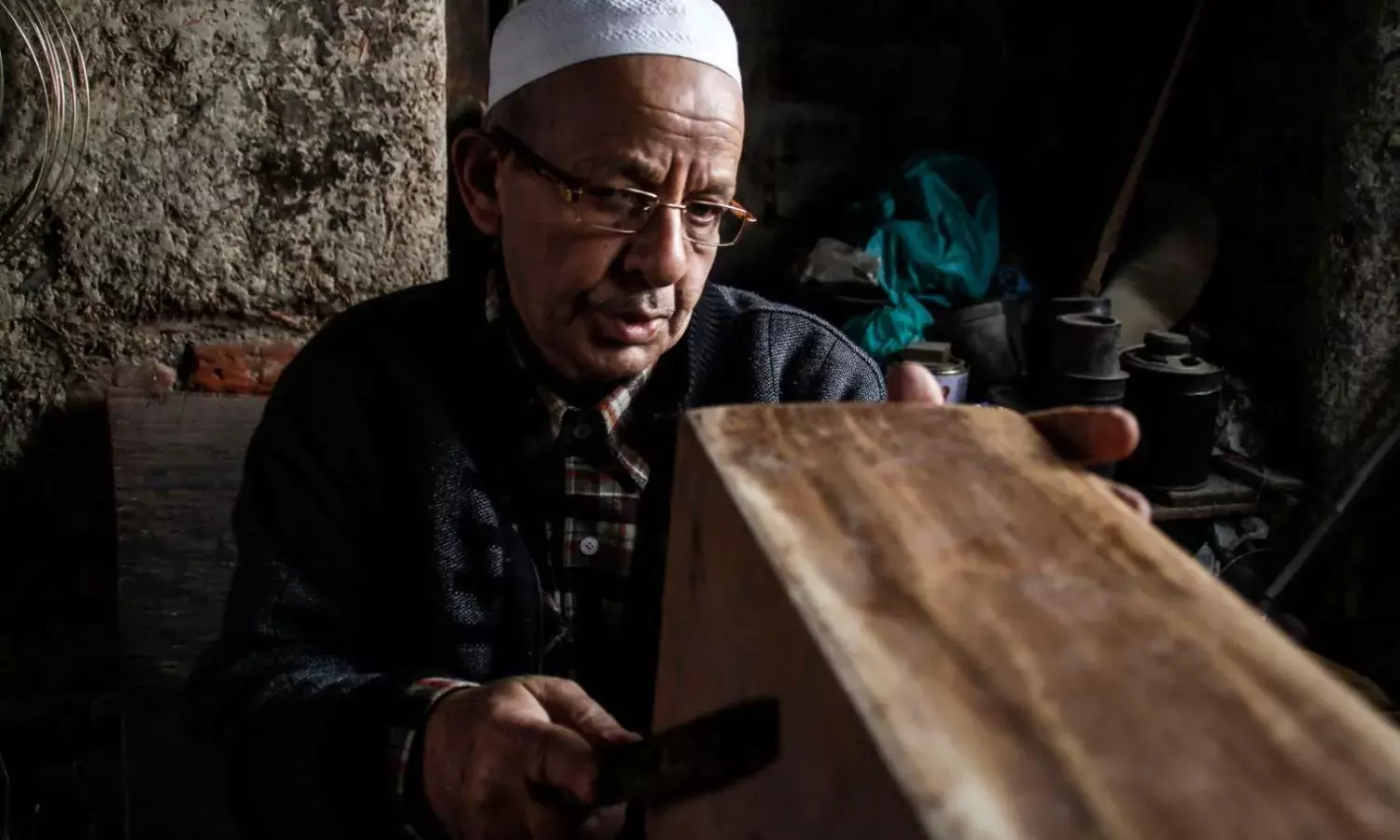Zaz, the Last Santoor Maker
'No one has shown interest in carrying forward the craft'

Ghulam Mohammad Zaz sits in his bright lit space, finding it excruciating to file the wooden edges of an unfinished santoor. As his age crossed eighty the strength has left his emaciated fingers, though his will remains the same. He knows this is the last chapter of an eight generation legacy.
The room’s mud plastered walls are smeared with soot, here and there, with strips of cardboard covering the cracks to hold back insects and unwanted light. All the sun that’s needed finds its way through two small window panes, each opposite the other.
The room is filled with screwdrivers, spanners, pliers, old tin boxlets and little cans, a short stool meant for visitors, a rabab, an old santoor, and a few frames on the walls with old black and white photographs, streaked with dust and dirt.
This workspace is on the second storey of a 300 year old structure as queer as most houses in the Old City - mere rooms modestly stacked one on the next like a pile of books, connected by a dark staircase which is too narrow for two.
The room where the maestro has for long been making string instruments, has the Jhelum on one side and the Zaianakadal Market on the other, with the famous Sufi shrine of Khanqah-e-Maula lying across the river.
Struck by a serious typhoid fever in his childhood, Zaz had to leave his studies on the advice of a doctor, Gaash Laal, to join the workshop as an apprentice of his grandfather, father, and uncle.
“During the Dogra regime this room was as vibrant and decorated as a flowerbed. Now the ambience has gone bleak, as you can see” says Zaz, pointing to the decrepit walls.
The art of making instruments has sprawled down his family for eight generations, and there is no descendant now to whom Zaz can bequeath the legacy.
“I do not have any remorse, my children are well settled, some are practising medicine abroad,” he says with a smile on his face.
Had he any idea who could take this trade forward he would be very happy, but as of now, he says, “no one has shown any interest.”
Before the 1990s he would get a lot of orders from the locals, but now Zaz can finish only five santoors a year. This is partly because of his progressing age and moods, but the chief reason is that the underlying demand has sharply been declining.
“Indigenous Muslims are a bit conservative about a lot of things, owing to which many trades have lost their heyday, and this trade is one of them. It is on the precipice of extinction, and that's why I receive the major chunk of my orders from outside the Valley.”
Zaz can make an array of instruments like the sarangi and the rabaab, but his expertise lies in making the santoor. Artists such as Shiv Kumar Sharma and Bhajan Lal Sopori have used instruments fashioned by him.
“My soul lies in the strings, my heart knows their tune. I know the notes. Although I cannot play, I am content with what I am doing,” says Zaz.



